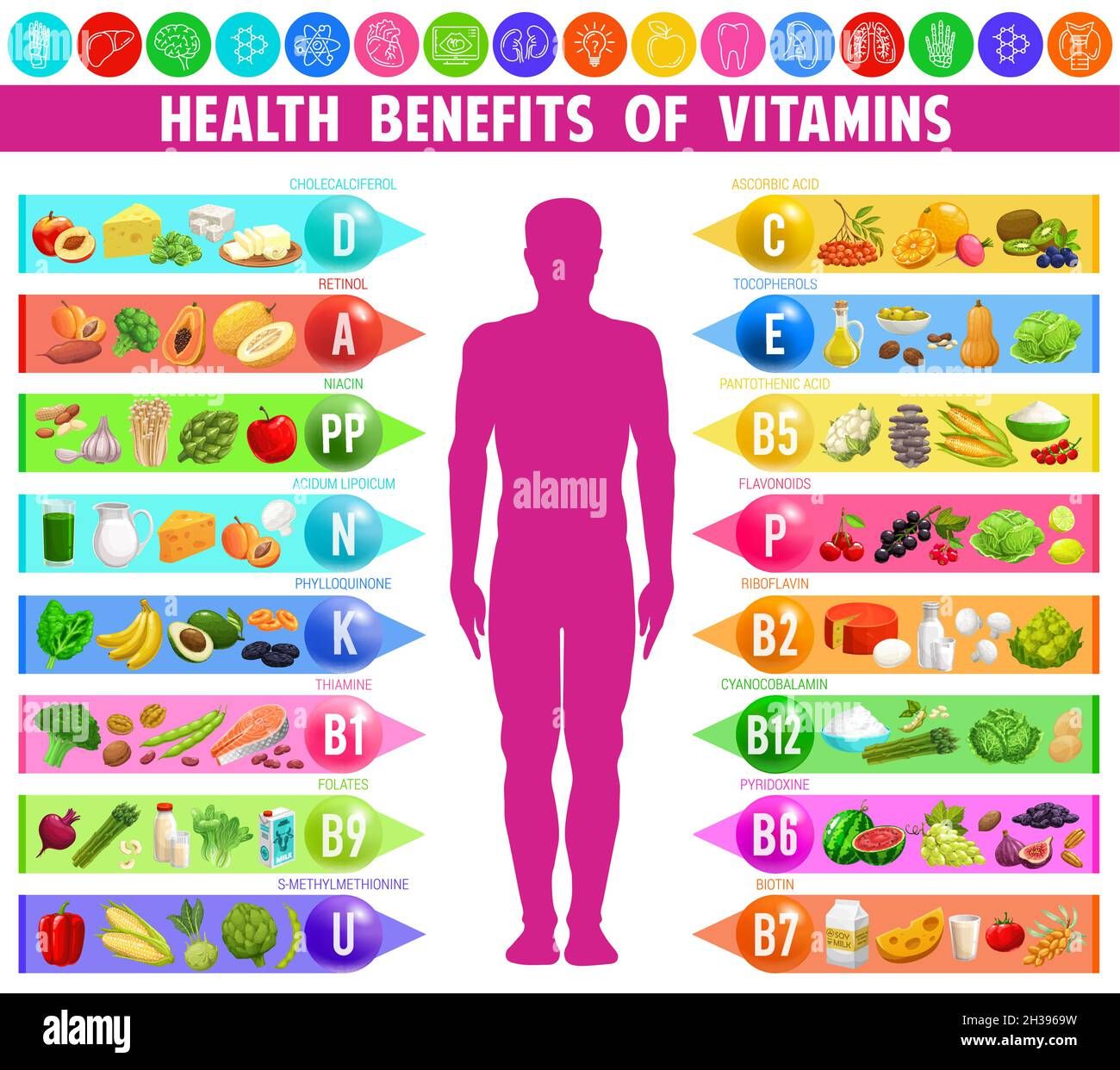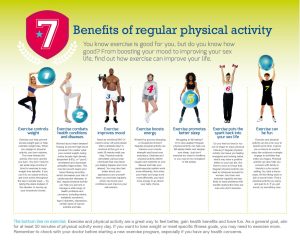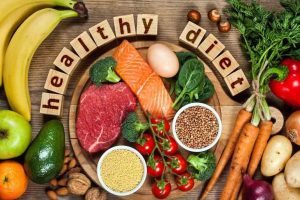
Essential Vitamins and Minerals for a Healthy Body
Vitamins and minerals play a crucial role in maintaining a healthy body. They are essential for various bodily functions, including growth, development, metabolism, and immunity. Incorporating a variety of nutrient-rich foods into your diet is the best way to ensure you receive an adequate intake of these essential nutrients. Let’s explore some of the key vitamins and minerals your body needs to thrive.
Vitamin A
Vitamin A is vital for good vision, a healthy immune system, and cellular growth and function. It is found in orange and yellow fruits and vegetables like carrots, sweet potatoes, and mangoes. Leafy greens like kale and spinach are also excellent sources.
Vitamin C
Vitamin C is known for its immune-boosting properties and its role in collagen synthesis, which supports healthy skin, bones, and blood vessels. Citrus fruits like oranges and grapefruits, as well as berries, bell peppers, and broccoli, are high in vitamin C.
Vitamin D
Vitamin D helps maintain healthy bones and teeth by regulating calcium absorption. Exposure to sunlight triggers the production of vitamin D in the skin, but it can also be obtained from foods like fatty fish (salmon, mackerel) and fortified dairy products.
Vitamin E
Vitamin E acts as an antioxidant, protecting cells from damage caused by harmful molecules called free radicals. Nuts and seeds such as almonds, sunflower seeds, and peanuts are excellent sources of this vitamin.
Vitamin K
Vitamin K is essential for blood clotting and bone health. It is found in leafy green vegetables like kale, spinach, and broccoli. Fermented foods like natto and sauerkraut also contain vitamin K.
Calcium
Calcium is crucial for maintaining strong bones and teeth, as well as supporting proper nerve function and muscle contraction. Dairy products like milk, cheese, and yogurt are high in calcium. Leafy green vegetables, fortified plant-based milk, and tofu are also good sources.
Magnesium
Magnesium plays a role in over 300 enzymatic reactions in the body, contributing to energy production, muscle and nerve function, and bone health. Legumes, whole grains, nuts, and seeds are all excellent sources of magnesium.
Iron
Iron is necessary for the production of hemoglobin, which carries oxygen to all parts of the body. Red meat, poultry, fish, and fortified cereals are rich sources of iron. Plant-based sources include legumes, tofu, and spinach.
Zinc
Zinc is important for immune function, wound healing, and DNA synthesis. It is found in oysters, red meat, poultry, beans, and nuts.
While it is important to obtain these essential vitamins and minerals through a balanced diet, some individuals may require supplements to meet their nutritional needs. However, it is always recommended to consult with a healthcare professional before starting any supplementation.
Remember, variety is key when it comes to fulfilling your body’s nutritional requirements. Including a wide range of colorful fruits, vegetables, whole grains, lean proteins, and healthy fats in your daily diet will provide you with the necessary vitamins and minerals for optimal health.

